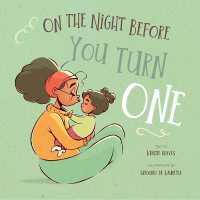- ホーム
- > 洋書
- > 英文書
- > History / World
Full Description
Why were the last generation of Jews to grow up in Poland before the Holocaust so susceptible to change and new ideas? Despite any major differences between different groups of Jewish youth, whether rich, poor, traditional, orthodox, Zionist, socialist, or communist, the generation as a whole was unified by "radical modernism," engaging with revolutionary political ideologies of the 1930s.
Modern and Radical explores the political consciousness of this generation of Jewish youth who came of age in 1930s Poland. Author Kamil Kijek describes how Jewish youth in the 1920s and '30s, unlike their parents and grandparents, attended Polish public schools, adapted to the realities of a Polish national state, and were significantly influenced by both Polish elite and popular cultures—despite the state's emphasis on ethnic Polish nationalism creating a strong feeling of exclusion. This, combined with discrimination in higher education and employment, as well as the growth of antisemitism, created a generation of Jewish youth with a complex, love-hate relationship with the Polish state.
Drawing on hundreds of autobiographies penned by young Polish Jews throughout the 1930s, Modern and Radical provides rich insight into how this unique group of Jewish youth in the interwar period experienced life in the emerging national Polish state., reviewing a previous edition or volume
Contents
Acknowledgments
Introduction
1. Tradition: Young People in the World of Their Parents, Religion, the Shtetl and the Jewish Neighborhood
2. Young People's Personal Ambitions and World of Work
3. Public Schools
4. Jewish Private Education
5. Patterns of Participation in Culture: Nationalism, Polonization and Polish-Jewish Culture
6. Symbolic Exclusion and Antisemitism
7. Political Activity
8. Political Consciousness
Conclusion
Notes
Bibliography
Index







